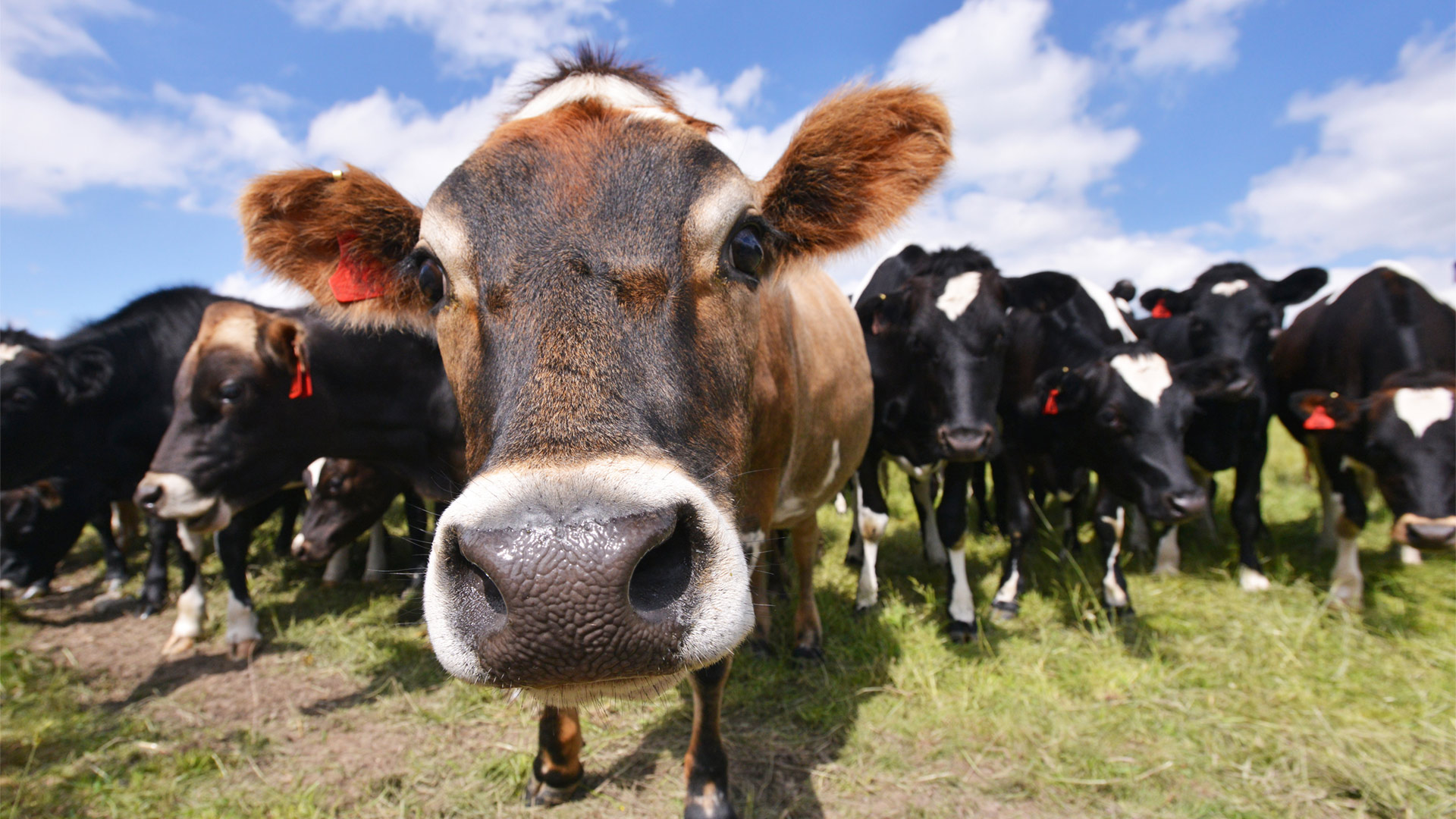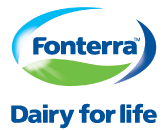
Making a difference
Fonterra is a New Zealand-based dairy cooperative and multinational company, which is majority-owned by approximately 10,000 dairy farmers. It has more than 30 manufacturing sites across New Zealand and processes about 16 billion litres of milk every year, 95% of which is exported to more than 130 countries. It is a major company in New Zealand, and approximately 25% of the country’s exports are Fonterra dairy products. China is the cooperative’s largest export market with over 900 staff working across consumer brands, food service and ingredients, and also over 100 ingredients customers and resellers across China.
 Simon Till
Simon Till
Director Capital Markets

As a New Zealand-based dairy cooperative, Fonterra has features that make managing its treasury unique. Simon Till, Director Capital Markets at Fonterra, who has responsibility for the Group Treasury and Equity Markets functions, explains his priorities and why he finds his role rewarding.
Fonterra carries the slogan ‘Everyday people doing good things together’ on its website. This may seem like just another marketing slogan, but it does seem to sum up the attitude that Simon Till, Director Capital Markets at Fonterra, brings to his role – both in being accountable to the cooperative’s farmer owners, and building a happy work environment.
Till explains how he enjoys the responsibility that he has to Fonterra’s farmer owners: “You know that that the farmers will be impacted by how well we do as a business and I get to meet many of the farmer owners during our results updates so there is a strong sense of personal responsibility to the farmer owners,” he says.
“With a cooperative, understanding the risk appetite of the farmer owner is a key part of the treasurer’s role; you have to make sure your financial and capital management policies are in line with that risk appetite,” says Till.
The cooperative exists to essentially pool resources for farmers, to collect their perishable goods and process it into a non-perishable form, and get the best total return available, explains Till.
Having this cooperative structure means that the risk appetite of the farmer owners is very clear. “In agriculture, in particular where it involves perishable products, farmers want the certainty that you can consistently deliver what you are there for, so they do not want the processor to be high risk or highly leveraged” says Till. “If farmers want higher risk, they can have that in their own farms. You do not want the supplier and the processor to both be highly leveraged,” he adds.
In terms of funding strategy, because 95% of the equity capital comes from farmer owners, Fonterra needs to have access to debt markets in all market conditions. “We need to be able to readily access those markets for our ongoing funding,” says Till. This compares to a listed company, for example, which could do a rights issue or share placement to raise more funds. “We would not be popular with our farmer owners if we wanted to raise equity at short notice,” he explains.
Fonterra’s A Band credit rating is critical to being able to raise funds in all conditions. “History shows that in good times anyone can raise money, but in bad times being highly-rated significantly improves market access,” says Till.
The cooperative has developed long-term relationships with banks, as well as the bond investors. Till explains that Fonterra has about 13 banks in its bank group – a relatively small number – with total bank facilities of approximately NZ$4bn. In the bond markets, Fonterra has four or five strategic currencies – or geographical regions – that it focuses on. “We focus on building relationships with our investors, which includes prioritising regular bond issuance in our key strategic funding markets” says Till.
Given Fonterra’s size relative to the New Zealand market, it would be challenging to get all the debt funding the organisation needs from the local market, unlike European equivalents, for example, that can easily tap their much larger local markets. “Diversification of funding is important,” says Till, and this includes raising funds in a number of other currencies aside from the New Zealand dollar as well as being able to access longer tenure funding, “It can be difficult to do that consistently in scale in the Australasian market,” he says.
“Because we export to over 130 countries, pretty much every element of what we do has a cross-currency exposure – whether it is transaction flows, funding the local business and repatriating cash, and the associated foreign exchange exposures. These cross-currency implications are a significant part of understanding and managing our risk,” says Till.
Also in his role, Till gets exposure to the global capital markets, which given the scale and complexity of Fonterra’s business, the organisation must have access to. “Fonterra collects around 80% of the milk produced in New Zealand and exports around 95% of that milk to 130 countries,” says Till. That scale and complexity is what he finds interesting, for example, with different funding arrangements in China, Asia, South America, and various emerging markets, and how to repatriate the cash.
Till has a number of priorities in his role. The primary purpose is to ensure the cooperative has the funds available to execute its strategy, and also to manage risk prudently and efficiently. “A huge part of that is how we deploy funds across the global operations and how we collect all the cash flows from that,” he says. “It is key for us to make sure we understand the financial risks in the business, and that we are measuring them, managing them, and reporting them in a way that is useful for people to base their decisions on,” he says. “There’s no point just reporting the risks, we want to present them so decisions can be made that improve the outcome.”
Fonterra has reset its strategy over the last two to three years, which has included significant deleveraging. “I feel that we have contributed quite strongly to the improved financial discipline. It is enjoyable to be making a difference to the organisation – that is very satisfying,” he says.
Also, strong liquidity is a key priority. “We are a highly seasonal business. Dairy in New Zealand is a pasture-based system where the grass provides the feed. Milk production follows the seasonal grass curve, which means we have a highly-seasonal funding requirement. For our core funding we use long-term bonds, and for the seasonal requirement we use the bank facilities as we have the flexibility to draw and repay these daily” says Till.
Also, another focus for Till is creating a supportive environment to work in. “It is important, in terms of how we operate and in any finance role, to have an environment where it is good to challenge and ask questions. You want the team to be comfortable challenging ideas, views and proposals- you have got to create an environment where they are comfortable doing that – you cannot just tell them to do it.”
Till also wants to create a fun environment. “If I were to talk about the highlights of my career over the years, I could give you a list of the transactions. But when I step back, the real highlight has been the people I have worked with. I love working in a high-performing team, with high energy, positivity and camaraderie. We spend a huge amount of time at work so it is important to enjoy that. A priority for me is helping create a fun and positive environment that makes being at work not feel like a job,” he says.
And although he doesn’t give the list of transactions, his career to date has had some significant highlights. After growing up on a sheep and beef farm in the Wairarapa, just out of Martinborough, which is now well known for its wineries, he went to Victoria University of Wellington. His undergraduate studies were in accounting and commerce, and honours year in finance. This set him up well for his career, which began at Jarden, a New Zealand-based investment banking firm.
One of the formative moments in his early career was the 1987 share market collapse, and Black Monday – or Black Tuesday as it is also known in New Zealand – when stock markets around the world plummeted, causing widespread panic. It also had a long-term impact on New Zealand’s real economy as well as its financial markets. “I saw first hand what risk was all about,” he says, adding that one of the triggers for the crisis was the poor reporting of cash flow. That experience taught him the importance of understanding cash flow and the consequences of poor risk management.
At Jarden, a full-service investment bank based in the relatively-small market of New Zealand, he was exposed to the full range of disciplines such as mergers and acquisitions (M&A), advisory, equity capital markets and debt capital markets. That experience became more international when Credit Suisse First Boston bought Jarden in 1990. Till comments that it was an exciting time to be in the industry, “There was huge change in the economy and the corporate landscape, and many significant and transformational transactions. I really enjoyed that environment and it was really exciting being part of Jarden and Credit Suisse First Boston.”
He worked his way up the ladder and by the late 1990s had become Head of Investment Banking of Credit Suisse First Boston in New Zealand and later a Global Managing Director of Credit Suisse First Boston, where he had relationship responsibility for key corporate accounts in New Zealand such as Fletcher Challenge and Lion Nathan.
In 2002, Credit Suisse First Boston sold its stake in the New Zealand business to local management and that was the point Till chose to make a change. “What I really enjoyed was the global interaction and cross-border transactions and we would have been going back to predominantly a domestic business,” he says. With that, he took some time out and went to live with his young family in France and Italy for a year.
On his return to New Zealand, he worked for himself in private equity and advisory. Then, in 2010, Fonterra advertised for the role of Head of M&A. The hiring manager was the cooperative’s Chief Financial Officer, Jonathan Mason, who Till already knew from his earlier investment banking days. He also knew Fonterra well from being an advisor on the cooperative’s formation in 2001.
“I had been thinking about making that change from an advisory role to working in a business where you are actually the one making the decisions and dealing with the consequences of them,” says Till. Also, he adds, he was attracted to Fonterra because of its involvement in the primary sector, its importance to New Zealand’s economy, and also the global scale of the business. “I get to see what is happening around the world,” he says.
He got the job and was the Head of M&A for a couple of years. He then became the Group Treasurer. In 2015, Fonterra restructured the team so that the Group Treasurer and Equity Capital Markets (which covers Investor Relations) roles were combined into the Director of Capital Markets position – which he has now. Till says that combining the roles made sense. “As a cooperative the majority of our capital comes from our farmer owners, but we also have a listed unit trust in which the public can buy units which receive the same economic rights as the shares in Fonterra, but the unit holders do not have voting rights in Fonterra. The unit holders and the various providers of debt have quite similar information requirements regarding the cooperative’s performance so there is a lot of synergies so combining the debt and equity capital market roles – it’s quite an effective way to do it,” says Till. Does this mean he gets double the money for doing the two roles? “No, my powers of persuasion are not that good,” he jokes.
An area that Till would like to see development in is managing risk in emerging-market currencies. In some markets, Till explains, due to liquidity and in some cases, regulatory restrictions, it is difficult to use traditional tools like forward contracts for hedging forecast exposures. “You cannot always hedge the currency beyond actual sales and therefore cannot hedge forecast sales – and being able to manage some of that exposure in a more sophisticated way would be great,” he says. “I think all treasurers would identify with that and I would like to see more tools to do that – it can be difficult to effectively manage all of the risk at the moment,” he says.
When asked about the trends Till has witnessed over his career, he comments on the broadening of the treasurer’s role. “Traditionally treasury was seen as a control function but in recent years it has broadened to being a business partner and trusted advisor, finding solutions for challenges.”
Another aspect that has changed is the increased availability and the complexity of funding structures. He comments on the variety of structures that are available for working capital, for example, which are designed to address challenges and problems. “I think there are structures out there that make sense, but also a number that don’t. Some do not make sense from an economic or fundamental finance point of view – they may be developed and used purely for accounting purposes or as a kind of window dressing but at an economic cost. It is important to be able to differentiate between them. You have to understand what you are using,” he says.
With sustainability, Till notes that in the past – say five years ago, in Europe – the first question that investors asked was about the environmental impact of the business and your plans to manage this. “Now, this is often the first question in all meetings. They do not just want to know about your policies, they want to know what your actual plans and actions are. They very much expect companies to walk the talk. Investors are increasingly demanding around sustainability and with that will come real change by the businesses,” Till says.